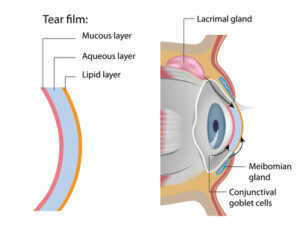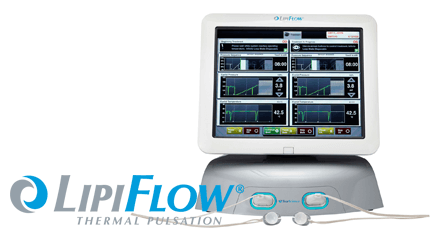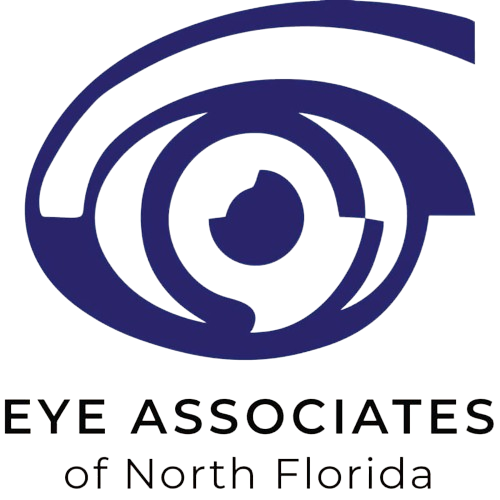Could Your Dry Eyes Be Due To Meibomian Gland Dysfunction?

Do your eyes often feel dry, irritated, or cause feelings of discomfort? For most people, dry eyes are a temporary problem.
Going to sleep, taking a break from your screen, or putting in eye drops can soothe your eyes until they begin producing tears again. However, dysfunction of the meibomian glands can cause your eyes to no longer create enough tears, leaving your eyes feeling dry and itchy all the time.
Without treatment, chronic dry eye can lead to discomfort, inflammation, and even permanent damage to the surface of your eyes. Consulting with a specialist can diagnose the cause of your dry eye and help you find the treatment you need.
At Eye Associates of Tallahassee, we have experience with treating dry eyes, as well as meibomian gland dysfunction (MGD). Our team can help you find solutions to your dry eyes, including traditional approaches like eye drops.
If MGD is the cause of your dry eyes, we also provide LipiFlow treatments to unblock the glands and help you produce enough tears again. Keep reading to learn more about dry eyes and to find out if meibomian gland dysfunction may be the cause of your symptoms!
What is Dry Eye Syndrome?

Dry eye syndrome is a common eye condition that affects over 4.8 million people. Many people that have dry eyes are also over the age of 50.
Women are twice as likely to develop dry eyes, especially if they’re pregnant, taking birth control, or going through menopause. While older people and women are more prone to this condition, anyone can develop chronically dry eyes. With the rise of computers, smartphones, and digital devices, this issue is more prevalent than ever.
Dry eye can be caused by a variety of factors, including:
- Hormone fluctuations
- Screen fatigue
- Allergies
- Dry air or windy conditions
- Contact lenses
- Aging
- Dehydration
- Smoking
Usually, you can treat the irritation associated with having dry eyes by using artificial tears or eye drops with soothing ingredients. But if your eyes are persistently dry and itchy despite treatment, it might be a sign that the glands around your eyes are blocked and no longer producing the oil needed.
What is Meibomian Gland Dysfunction?

Meibomian gland dysfunction is an eye condition that can cause chronically dry eyes. 86% of people with dry eye syndrome also have meibomian gland dysfunction, but they may not be aware of it.
You have a few dozen meibomian glands on each eyelid, on the bottom, and on the top. These glands secrete a unique oil called meibum, which collects on the margin of your eyelids. When you blink, this oil mixes with the rest of your tears. Your tears consist of three layers:
- Mucus, which helps moisture spread evenly over the eye
- Aqueous fluid, the water layer that keeps your eyes hydrated
- Meibum, the oil that prevents your tears from evaporating
When your meibomian glands become blocked, the quality of your tears deteriorates. While your eye is still producing tears, there is no meibum to keep the aqueous fluid from evaporating away. Without meibum, this leaves the surface of your eyes dry and exposed, leading to inflammation.
Symptoms of Meibomian Gland Dysfunction

The most apparent symptom of meibomian gland dysfunction is dry eyes, but living with chronic dry eye can lead to other symptoms, including:
- Watery eyes, which usually start feeling very dry again shortly after
- Burning, stinging, and itching
- Sensitivity to light
- Redness and inflammation
- Stringy mucus around the eyes
- Difficulty wearing contact lenses
- Feeling like you have something in your eye
- Having a gritty sensation like there’s sand in your eyes
Severe dry eye can also cause damage to the surface of the eyes, leading to inflammation and infection. While permanent damage caused by MGD is rare, you’ll have to deal with feelings of discomfort until you receive treatment. The sooner the condition is diagnosed and treated, the sooner you can improve your quality of life.
Diagnosis and Treatment
When diagnosing dry eye syndrome, it’s essential to rule out possible causes before committing to treatment. If you haven’t already tried medicated eye drops and lifestyle changes, your eye doctor might recommend trying these first.
Over-the-counter eye drops might not do the job properly, which is why our team offers HydroEye® to soothe and support dry, itchy eyes. You can also reduce symptoms of dry eyes on a day-to-day basis by:
- Reducing screen time
- Using a humidifier in your home
- Drinking more water
- Pointing heaters and fans away from your face
If your dry eyes persist, you might be suffering from meibomian gland dysfunction. Your ophthalmologist can check for this condition by examining your eyelids, cornea, and tears. They might use a dye test to measure the quality and quantity of your tears.
LipiFlow
The good news is that you can have blockages in the meibomian glands cleared. At Eye Associates of Tallahassee, our team uses the LipiFlow system to gently heat and massage the eyelids, removing excess skin cells and oil.

LipiFlow is fast and painless and only takes about 12 minutes to complete. It is the only system approved by the FDA for meibomian gland dysfunction, and it’s gaining traction as one of the most efficient treatments for dry eye syndrome.
You can expect to feel results in the days following the procedure, and many patients receive follow-up treatments every few years to prevent their symptoms from returning. Your eye doctor at Eye Associates of Tallahassee will tell you how often they recommend you return for LipiFlow treatment.
Depending on the severity of your dry eye symptoms, they may recommend other treatments to help you get the relief you need.
Are you tired of living with the frustrating symptoms of dry eye syndrome? Find out if you may be suffering from meibomian gland dysfunction by scheduling an appointment at Eye Associates of Tallahassee in Tallahassee, FL, today! Don’t your eyes deserve to feel comfortable again?







